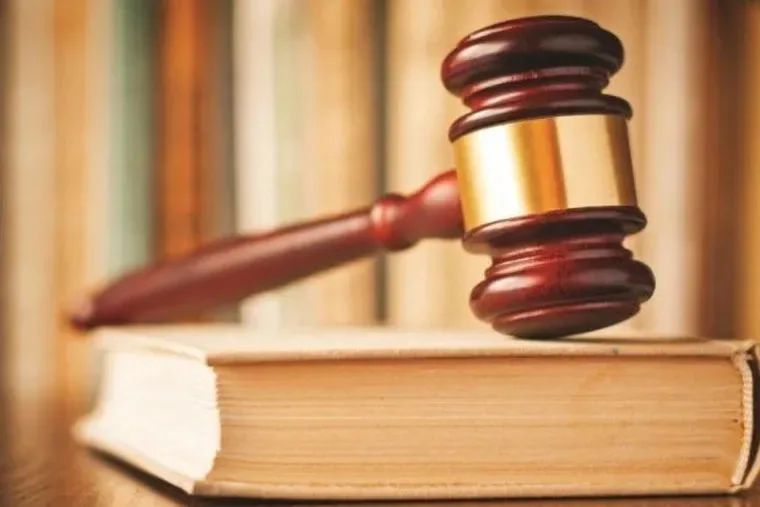
In what New Jersey officials called a first-of-its-kind reform, the state’s courts have begun collecting racial and demographic data on jurors to help align jury panels with the diversity of surrounding communities.
Court officials say the effort will help ensure that jury pools are an appropriate reflection of the communities from which jurors are drawn.
It’s one of a host of changes New Jersey began last year, including limiting how extensively trial lawyers can examine jurors’ backgrounds when seeking to remove potential jurors from serving on a particular case.
Other efforts, such as implicit bias training for court staffers, and education campaigns about the benefits of jury duty in marginalized communities, are also underway.
Civil rights groups and legal experts lauded the reforms, saying the jury selection process has long kept working-class people and people of color from participating in a key function of the criminal justice system.
“The pursuit of justice is a never-ending process,” said Julio Mendez, a retired judge in Atlantic and Cape May Counties and a senior contributing legal analyst at Stockton University. “New Jersey should be commended for taking these steps.”
The jury diversification began in 2021, when the state Supreme Court reversed the 2017 murder conviction of Edwin Andujar, a Newark man accused of stabbing his roommate to death.
Before Andujar’s trial, state prosecutors moved to eliminate a Black juror from the pool, arguing that his associations with people accused of crimes could compromise his impartiality. Defense lawyers countered by saying that logic would dictate that “a lot of people from Newark would not be able to serve.”
When the court denied that request, prosecutors noted that there was an outstanding warrant for the man’s arrest in a simple assault case. He was arrested, and the judge agreed to strike him from the jury.
In challenging that decision, the American Civil Liberties Union said the arrest “rendered the courthouse into a potential threat to freedom rather than a proud locus of civic engagement.”
The Supreme Court later unanimously agreed that the decision to disqualify the juror may have stemmed from implicit or unconscious bias. It soon formed a committee to suggest changes, headed by Chief Justice Stuart Rabner and comprised of legal experts, community members, and state government officials.
The result of the committee’s work included the rollout of demographic collection on potential jurors this spring.
A similar program has been proposed in Pennsylvania, where a state Supreme Court rules committee is reviewing potential reforms that advocates say could be sent to the justices for a vote by the end of summer.
Such change would be welcome in a state that has taken steps toward change in the jury selection system over the past two decades, said Lisette McCormick, executive director of the Pennsylvania Interbranch Commission for Gender, Racial, and Ethnic Fairness.
McCormick’s team conducted a 2003 study that found jury pools in Pennsylvania often excluded working-class people and people of color. That’s because the lists of potential jurors were drawn from voter registries and motor vehicle records — lists she said can skew older, wealthier, and less diverse.
The state briefly launched a pilot program in 2012 that allowed counties to voluntarily collect demographic data, but those efforts have recently ended, McCormick said. That data is still collected by courts but destroyed after trials, leaving concerns about equity unanswered, she said.
“We had hoped that we increased diversity,” McCormick said of the program. “But we don’t have any data to show that.”
New Jersey’s new policies seek to broaden the state’s jury selection pools, using lists that include taxpayers and people receiving public assistance. Pennsylvania, too, has broadened its jury selection pools, but leaves the option to use a statewide database up to county officials. Around two-thirds participate.
While advocates laud the steps both states have taken to broaden jury representation, they say further reforms are necessary.
Increasing the daily pay rate for jurors would make serving more economically feasible to wider groups of people, said Mendez. In New Jersey, jurors are paid just $5 a day, making jury duty a financial burden for many hourly wage workers whose employers do not pay for time spent in court. Pennsylvania pays jurors $9 a day, fueling the same problem.
“You have a single mother who works at a place making $18 an hour and she’s called upon to serve on a jury, she doesn’t get pay,” Mendez said. “The choice for that person is, do I fulfill my obligation as a citizen — which we all should do — or do I pay my rent?”
In 20 years on the bench, Mendez said, he saw economic considerations keep marginalized people from jury service.
In addition to economic incentives, advocates of broader jury representation say, expanding selection pools to people convicted of some low-level crimes would also help diversify the jury pool, particularly in New Jersey, which has strict limits on jury service for those convicted of crimes.
Said Mendez, “A broad spectrum of participation — that is representative of the entire community — will lead to a fair and impartial jury.”


